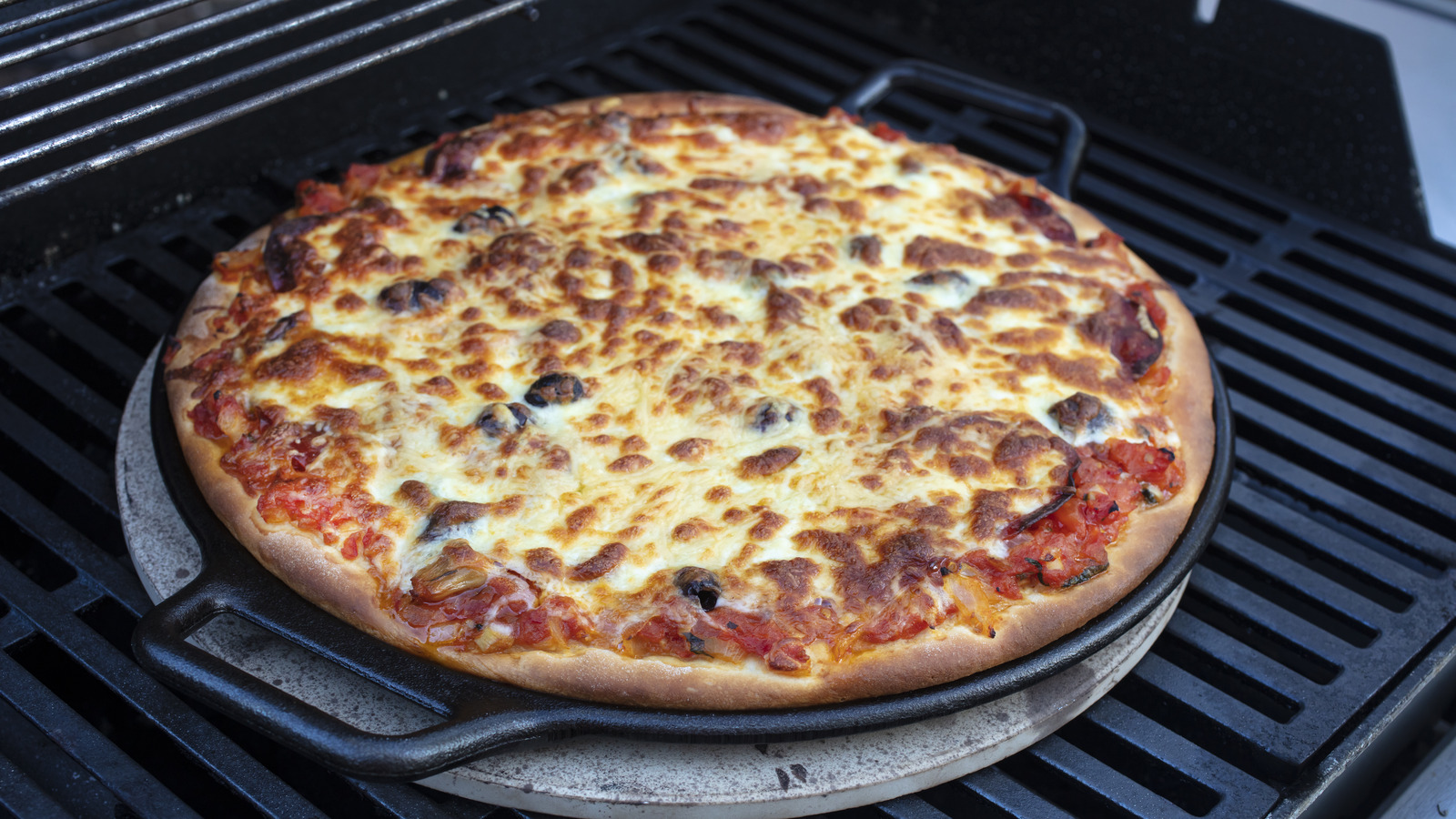
""I like to use my Neapolitan dough because it can cook longer without scorching." That burn factor is key, and the chef advises, "When grilling pizza, it's best to use a dough that won't burn easily." With grills reaching up to 600 degrees Fahrenheit or more, it's important that the dough's ingredients can withstand the high temperatures. "Neapolitan dough typically doesn't include browning agents like malt or sugar, which helps prevent burning," says Gemignani."
""Made of only 00 pizza flour, water, salt, and yeast, a Neapolitan pizza dough recipe has a simple makeup that doesn't run the risk of getting too charred on the grill. Pizza is often grilled at 400 to 550 degrees Fahrenheit, and pure sugar starts to caramelize at around 338 degrees Fahrenheit, so it will blacken and burn to a crisp at higher temps.""
Grilling pizza adds smoky flavor and a slightly crisp exterior while keeping the interior pillowy. Neapolitan dough can cook longer without scorching and typically lacks browning agents like malt or sugar, reducing the risk of burning at high grill temperatures. Neapolitan dough consists of 00 flour, water, salt, and yeast, producing a simple composition that resists charring. Pizza is commonly grilled between 400 and 550 degrees Fahrenheit, while pure sugar begins caramelizing near 338 degrees Fahrenheit and will blacken at higher temperatures. Lower-protein flours generally perform better on grills than higher-protein flours.
Read at Tasting Table
Unable to calculate read time
Collection
[
|
...
]